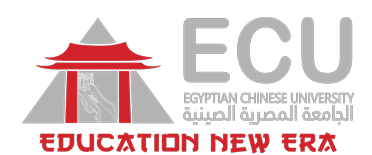1.Program Mission
The Energy and Renewable Energy Engineering program’s mission is to deliver design education that is driven by a professional and technological focus and is deeply devoted to sustainability. The department is dedicated to training and encouraging future engineer who are technically proficient as well as morally professional.
As a result, the program is built on the following goals:
PM1: To increase students’ understanding of non-specialization disciplines, particularly those connected to human sciences, to increase their social participation.
PM2: To encourage design innovation and critical thinking.
PM3: To provide students with the requisite depth in electrical power and mechanical power engineering disciplines for engineering careers.
PM4: To teach students engineering design principles such as innovative ideas, project creativity, practical integration, and leadership.
PM5: To provide students with the fundamental engineering scientific understanding and communication skills needed to comprehend, collaborate with, and coordinate other engineering expertise in the renewable energy field.
2. Program Aims
The major aims of the Energy and Renewable Energy Engineering program at “Egyptian Chinese University’s” “Faculty of Engineering” are to provide students with the necessary scientific knowledge and abilities to:
PA1: Encouraging the growth of a powerful undergraduate program that emphasizes the acquisition of technical expertise as well as exposure to a wide range of energy and renewable energy activities to foster the development of sound reasoning abilities, leadership, and moral behavior.
PA2: Graduating engineers of exceptional quality to improve the spectrum of experts in the energy and renewable energy sectors.
PA3: Encouraging and attract well-respected staff with wider academic context, with the required support network and abilities in teaching, research, community service, and intellectual properties.
PA4: Provides students access to the facilities, technology, travel, and internship opportunities they need to succeed.
PA5: Through community service-based research and teaching activities, making beneficial contributions to the larger environmental and social context and building a valued visible reputation.
3. Graduate Attributes
The Energy and Renewable Engineering Graduate must be able to:
GA1: Identify, formulate, and solve complex engineering problems by applying engineering fundamentals, basic science, and mathematics.
GA2: Develop and conduct appropriate experimentation and/or simulation, analyze and interpret data, assess, and evaluate findings, and use statistical analyses and objective engineering judgment to draw conclusions.
GA3: Apply engineering design processes to produce cost-effective solutions that meet specified needs with consideration for global, cultural, social, economic, environmental, ethical, and other aspects as appropriate to the discipline and within the principles and contexts of sustainable design and development.
GA4: Utilize contemporary technologies, codes of practice and standards, quality guidelines, health and safety requirements, environmental issues and risk management principles.
GA5: Practice research techniques and methods of investigation as an inherent part of learning.
GA6: Plan, supervise and monitor implementation of engineering projects, taking into consideration other trades requirements.
GA7: Function efficiently as an individual and as a member of multi-disciplinary and multi-cultural teams.
GA8: Communicate effectively – graphically, verbally and in writing – with a range of audiences using contemporary tools.
GA9: Use creative, innovative, and flexible thinking and acquire entrepreneurial and leadership skills to anticipate and respond to new situations.
GA10: Acquire and apply new knowledge; and practice self, lifelong and other learning strategies.
GA11: Identify, assess, and control suitable drive systems for various energy applications.
GA12: Mechanical energy systems are designed utilizing appropriate materials to use both conventional and new tools.
GA13: Evaluate, investigate, and assess energy conversion and control strategies and methods. GA14: Assess and check the performance and appropriateness of energy systems.
GA15: Differentiate the configuration of power generation plants and the transmission and distribution associate networks.
